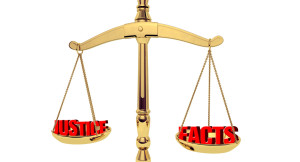Is It Libel, or Just Free Speech?
It may not have escaped your notice that Americans like to sue each other. One of our great modern thinkers, “Weird Al” Yankovic, even wrote a song about it (in part: “I’ll sue ya, I’ll take all your money / I’ll sue ya, if you even look at me funny!”). One thing that really gets our litigious juices going is when someone says nasty things about us, either in speech or in print. Yes, today’s topic is libel and slander (mostly libel, though; more on the difference later). If you are a writer who writes about real people, it’s something you should keep in mind.
As usual, none of this should be construed as legal advice of any kind.
So what is libel? Libel is the written form of defamation (the spoken form is called slander). Defamation is defined as a published, false, injurious, and unprivileged statement about someone. In this context,
- “Published” means that it was accessible by a third party, whether in a book, newspaper, blog or any
 other medium.
other medium. - “False” means what you think it does. Statements that are mean-spirited and nasty, but true, cannot be libelous. In addition, statements that are clearly matters of opinion cannot be defamatory, because they cannot be proven false.
- “Injurious” means that the statement has caused harm to the person in some way, such as a loss of reputation, or a loss of job or other means of income.
- “Unprivileged” has to do with the context in which the statement is made. In certain narrow circumstances, you can’t be sued for defamation, even if all the other criteria are met. Statements made in court or in a legislative session, for instance, cannot be found to be defamatory.
Someone who sues for libel must prove that the statement met all four of the criteria.
So, to take an example, a sentence in the first paragraph of this blog article refers to “Weird Al” Yankovic, a real person. Could he sue for defamation? Let’s see:
- Published: Yes—the fact that you are reading this means that it is published.
- False: No—he did in fact write and perform a song called “I’ll Sue Ya,” and it contains the quoted lyrics. The other part of the sentence (“One of our great modern thinkers”) is clearly an opinion, and even if Mr. Yankovic prefers not to be referred to as such, he’s out of luck legally.
- Injurious: Maybe, but he would have a hard time proving that this statement harmed him in any way.
- Unprivileged: Yes—it does not meet any of the privileged contexts.
But here’s even worse news for Mr. Yankovic: For public figures, such as government officials and celebrities, the legal bar is even higher, because the target of the statement has to prove that the statement was made with actual malice. “Actual malice” means that the writer knew the statement was untrue or did not attempt to verify it. So even a statement like “’Weird Al’ Yankovic eats kittens for breakfast” might not be found libelous if he couldn’t prove actual malice.
So how do you avoid getting sued for defamation? It’s not that difficult, really. When you are writing about real people (public figures or otherwise), always fact-check what you say about them, or craft the statements in a way that clearly makes them opinions. And not just by sticking “In my opinion” onto it; “In my opinion, ‘Weird Al’ Yankovic eats kittens for breakfast” is clearly an attempt to hide behind an “opinion” label. A stronger take would be along the lines of “In my opinion, way too many kittens have disappeared in the vicinity of the Yankovic residence.”
Being sued is no fun, and even if you clearly have done nothing wrong, defending yourself takes time, energy, and money. Keep the rules of defamation in mind and you won’t need to worry.
Morris Vaughan is a technical writing consultant in Los Angeles, California.

